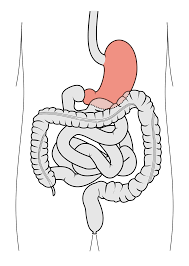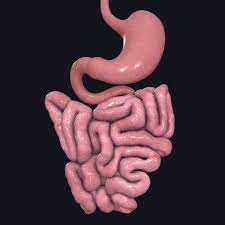Large Intestine
- Sep 3, 2022
- 2 min read
The digestive tract includes the large intestine. The digestive system is made up of the mouth, the small intestine, the large intestine, and the rectum. The big intestine is somewhere around 5 feet long and accounts for a significant part of the gastrointestinal (GI) tract. After the small intestine absorbs the majority of nutrients, the large intestine is involved in digesting the crushed food (chyme). The large intestine is classified as four parts. It consists of the cecum as well as the ascending colon, transverse colon, descending colon, and sigmoid colon. The large intestine serves an important function by absorbing water and nutrients from leftover waste.

What does the Large Intestine do
As stated before, the large intestine has three basic functions which are absorbing water, vitamins and making sure waste gets to the rectum. The water absorbing is relatively minimal as the small intestine absorbs 90% of the water before sending it to the large intestine. The ascending colon absorbs the water and forms the food into . The descending colon holds the waste until it is sent to the rectum. The colon tightens, forcing solid feces to flow through into the rectum by elevating the pressure from inside the colon. The rectum is also where fecal matter is stored to be eliminated by defecation.
What happens if the large intestine does not work
An intestinal obstruction will cut off the circulation of blood and cause half of the tract to atrophy. As the strain from the obstruction rises, gut germs may flow into the system. Peritonitis, a gastrointestinal infection, is possible. People also have a chance of developing sepsis, a potentially deadly bloodstream condition. The gut can constrict and flatten during the final periods of the illness, significantly affecting the water retention and causing the intensity of bathroom habits and poor regulation of elimination function. As the colon tries to preserve regular bowel function, constipation can ensue. Another typical symptom is gastrointestinal discomfort.
Conclusion
In conclusion, the large intestine is one of the most important organs in the entire body. It helps the body survive and function by absorbing nutrients from the food that we eat. It helps in every system from the cardiovascular system to the nervous system to the digestive system.Without the large intestine, Humans would be able to live peacefully but it would be harder to release waste from the body. The large intestine plays a role in the human body that is overlooked at times but very important.




Comments